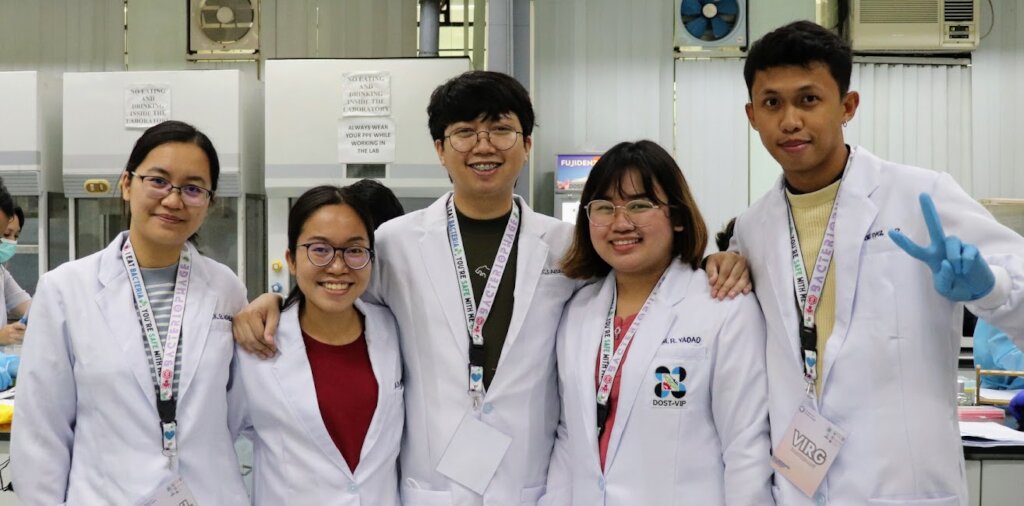
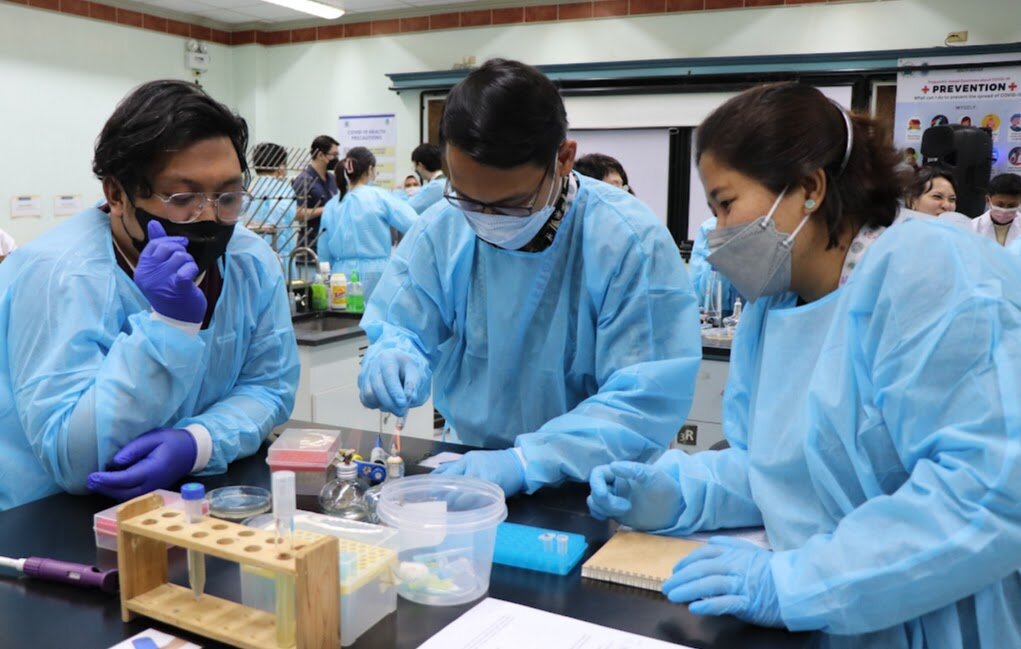
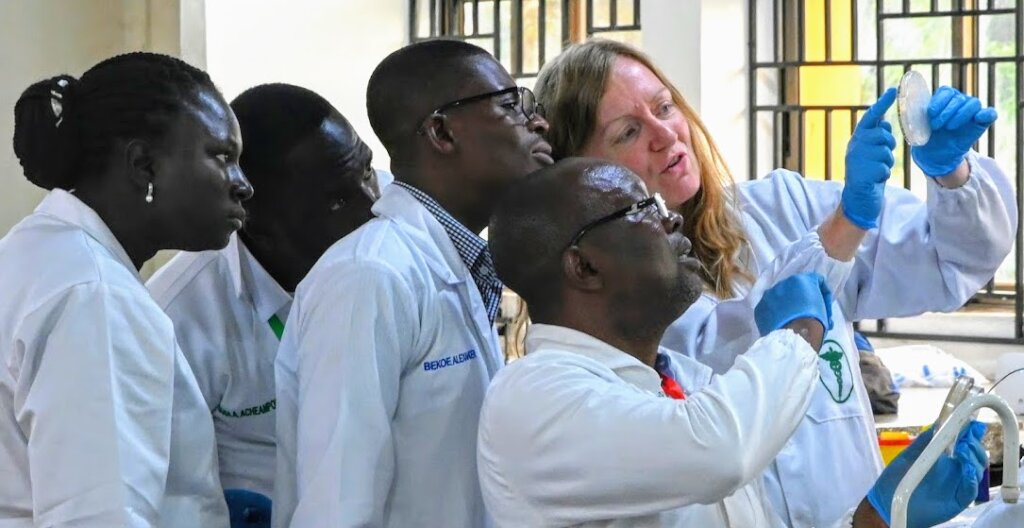
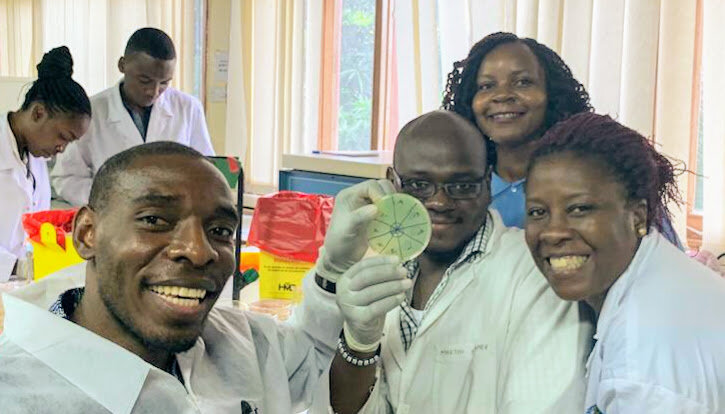
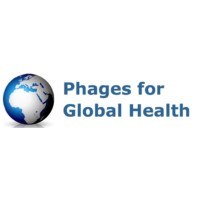
Phages for Global Health facilitates the development of antibacterial phage products for developing countries. Natural Antibacterial Agents: Bacteriophages (phages) are bacteria-killing viruses that exist in the environment, on our food, and in our bodies, and they can be selected to target only specific bacteria while leaving other, helpful bacteria and human cells unharmed. Phages have been used as a standard component of medical practice in certain parts of the world for over 100 years, and they have exhibited remarkable safety and activity profiles. Most notably, phages are active against both antibiotic-resistant and antibiotic-sensitive bacteria -- a crucial feature in the midst of ou... read more Phages for Global Health facilitates the development of antibacterial phage products for developing countries. Natural Antibacterial Agents: Bacteriophages (phages) are bacteria-killing viruses that exist in the environment, on our food, and in our bodies, and they can be selected to target only specific bacteria while leaving other, helpful bacteria and human cells unharmed. Phages have been used as a standard component of medical practice in certain parts of the world for over 100 years, and they have exhibited remarkable safety and activity profiles. Most notably, phages are active against both antibiotic-resistant and antibiotic-sensitive bacteria -- a crucial feature in the midst of our global antimicrobial resistance crisis. In addition, phages can be easily isolated from contaminated environments, and they are inherently inexpensive to manufacture. It is also possible to dry powder formulate phages such that the final products do not require refrigeration. Taken together, all of these factors make phages particularly well-suited as antibiotic alternatives for developing countries. How We Work: Phages for Global Health brings together international, multidisciplinary teams to co-develop phage products for specific applications in developing countries. To efficiently implement these projects, we build partnerships between global phage experts and developing world infectious disease specialists (clinicians, food safety scientists, regulatory advisors, and stakeholder engagement professionals). With this mix of specialists, we create teams that have both the technical expertise necessary to develop phage products and also the local scientific and cultural knowledge to deliver products that will be socially accepted and effective. Our growing consortium of project partners includes leaders from non-profit organizations, for-profit companies, and academic and governmental institutions across Africa, Europe and North America. In addition to bringing together these teams, Phages for Global Health helps develop the overall project strategies, advises on product development, supplies project management, and leads fundraising efforts. Together with our partners, we have also created a series of short-term laboratory training programs to teach key essentials of phage biology to scientists in developing countries. Our Current Projects: For our projects we identify bacterial diseases that have significant gaps in prevention or treatment tools and for which there is already strong data indicating that phages can help. And we work in countries where we have partnerships with leading public health scientists who are able to substantively impact standard practices in their countries. Our existing projects are summarized below, and we are in discussions with specialists around the world through which additional projects may soon emerge. (1) Cholera Phages: (Democratic Republic of the Congo / DRC) Developing cholera phage products that can be used both for preventative treatment in people and for water decontamination. Partners: Ministry of Health (DRC), University of Kinshasa (DRC), Yale University (US), University of Alberta (Canada), Queen Astrid Military Hospital (Belgium) (2) Campylobacter Phages: (Kenya & Egypt) Developing Campylobacter phage products to decontaminate retail poultry meat, which is the primary source of Campylobacter infection in people. Partners: Kenya Medical Research Institute, University of Nairobi (Kenya), University of Science and Technology (Egypt), University of Nottingham (UK), University of Alberta (Canada) (3) Laboratory Training Program: (East Africa) Delivering a 2-week, hands-on laboratory training course through which African scientists can learn how to isolate and characterize phages in their own regions. Partners: University of Nairobi (Kenya), Sokoine University of Agriculture (Tanzania), Makerere University (Uganda), Yale University (US), University of Utah (US)

Each of GlobalGiving’s nonprofit partners is required to send quarterly donor reports detailing the impact of their work. Here are some of their recent updates: